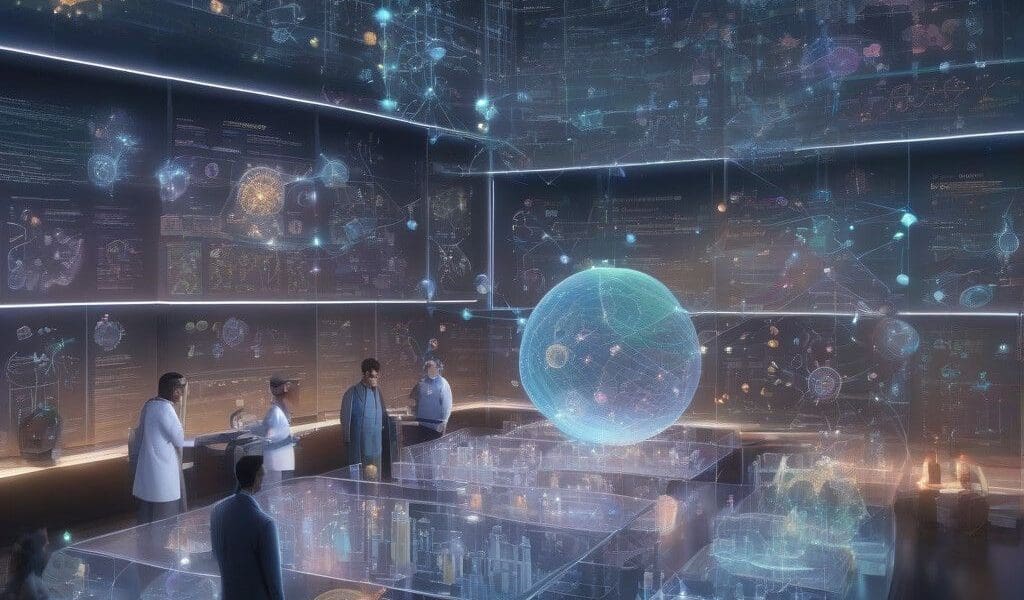Groundbreaking AI Advances: The 2024 Nobel Prize in Chemistry
The 2024 Nobel Prize in Chemistry has illuminated the monumental impact of artificial intelligence (AI) within scientific research, specifically in the field of protein structure prediction. Awarded to three brilliant scientists, David Baker, John Jumper, and Demis Hassabis, this recognition underscores the transformative role that AI is playing in advancing our understanding of life’s fundamental building blocks.
David Baker, a professor at the University of Washington, has been praised for his pioneering work in computational protein design. His research focuses on inventing new proteins that can address pressing global challenges like climate change and emerging diseases. For instance, Baker’s innovations could lead to the development of novel vaccines or therapeutic proteins that significantly improve health outcomes. His work not only contributes to scientific knowledge but also has practical applications in pharmaceuticals and biotechnology.
On the other hand, Jumper and Hassabis, both affiliated with Google DeepMind, have made significant strides with their AI model, AlphaFold2. This technology has revolutionized the way researchers predict the three-dimensional structures of proteins based on their amino acid sequences. By successfully predicting the folding patterns of nearly all known proteins, AlphaFold2 has opened up new avenues for drug discovery and understanding biological processes at a molecular level. This breakthrough has profound implications, including the potential to combat antibiotic resistance and engineer enzymes to decompose plastics, addressing critical environmental issues.
The collaborative success of these scientists is emblematic of a broader trend within the scientific community, where interdisciplinary approaches combined with advanced AI techniques are yielding unprecedented results. The recognition of AI’s role in this domain echoes recent trends in various fields, suggesting that as computational methods evolve, so too will our capacity to tackle complex biological problems.
This year’s Nobel Prize in Chemistry is notable not only for its scientific significance but also for its monetary reward of 11 million Swedish crowns, approximately $1.1 million. The laureates will receive their accolades during the prestigious Nobel banquet in Stockholm this December, a moment where the merging of artistry and science will take center stage.
Hassabis expressed his exhilaration with the award, emphasizing the surreal nature of receiving such an honor. “This recognition is not just about us as individuals; it reflects the collaborative spirit and efforts of many dedicated researchers.” Baker echoed this sentiment, acknowledging that his pursuit in protein design has been driven by a commitment to solving critical global issues. He anticipates that his ongoing research will continue to lead to breakthroughs across numerous scientific domains.
The recognition given to Baker, Jumper, and Hassabis is particularly poignant in light of the growing emphasis on AI in recent scientific accolades. Earlier this week, another Nobel Prize was awarded for research that involved AI, reaffirming the technology’s position as an essential tool in contemporary science. With AI transforming various fields from natural language processing to autonomous vehicles, its burgeoning role in life sciences marks a significant milestone in scientific history.
In conclusion, the 2024 Nobel Prize in Chemistry serves as a beacon of progress, showcasing how AI is poised to revolutionize our understanding of complex biological systems. As researchers continue to push the boundaries of knowledge in protein research, the benefits of such innovations are bound to ripple through the realms of medicine, environmental science, and biotechnology. The future is bright as we stand on the cusp of monumental discoveries fueled by the synergistic potential of AI and human ingenuity.








